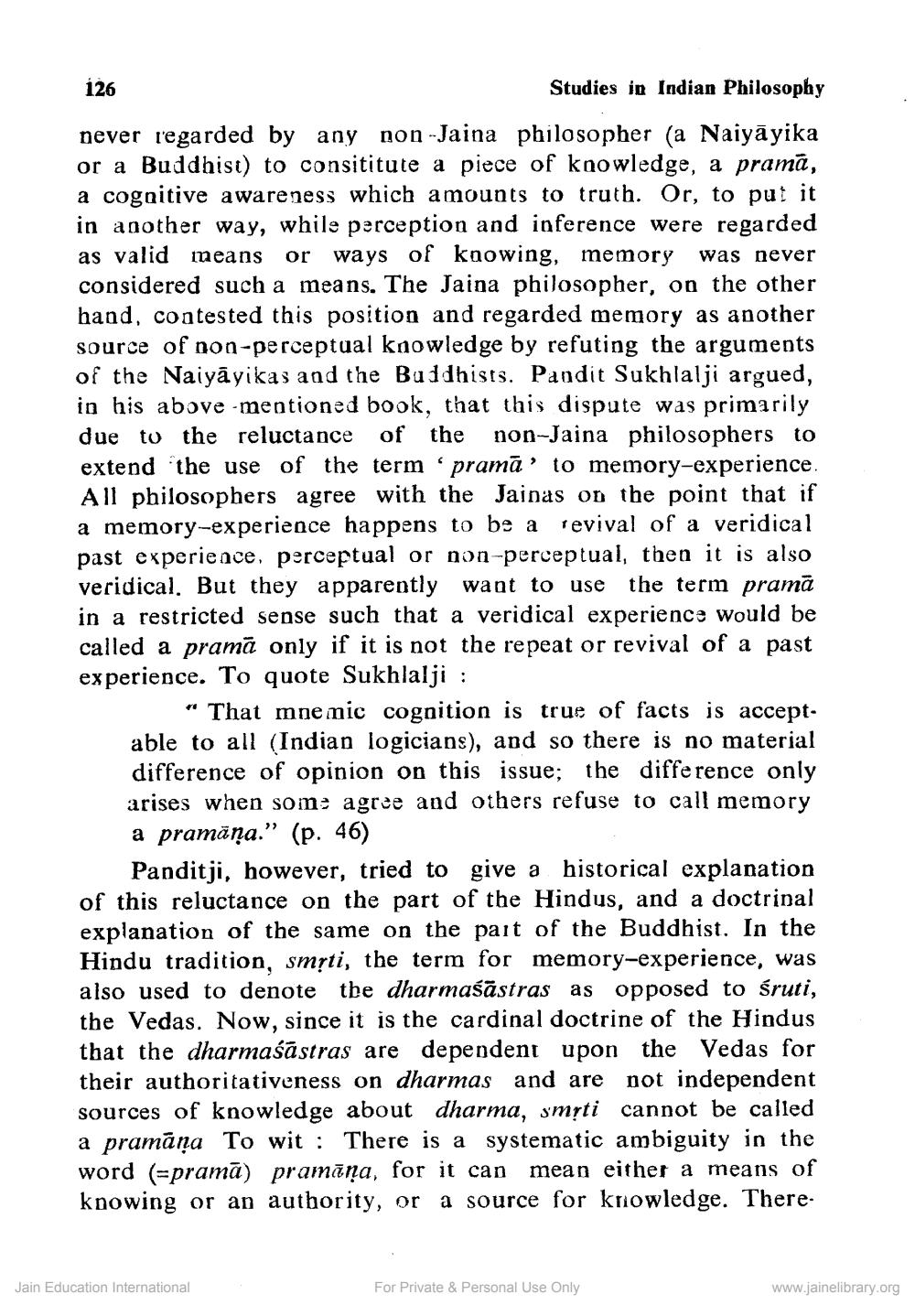________________
126
Studies in Indian Philosophy
never l'egarded by any non-Jaina philosopher (a Naiyāyika or a Buddhist to consititute a piece of knowledge, a prama, a cognitive awareness which amounts to truth. Or, to put it in another way, while perception and inference were regarded as valid means or ways of knowing, memory was never considered such a means. The Jaina philosopher, on the other hand, contested this position and regarded memory as another source of non-perceptual knowledge by refuting the arguments of the Naiyāyikas and the Buddhists. Pandit Sukhlalji argued, in his above-mentioned book, that this dispute was primarily due to the reluctance of the non-Jaina philosophers to extend the use of the term 'pramā' to memory-experience. All philosophers agree with the Jainas on the point that if a memory-experience happens to be a revival of a veridical past experience, perceptual or non-perceptual, then it is also veridical. But they apparently want to use the term pramā in a restricted sense such that a veridical experience would be called a pramā only if it is not the repeat or revival of a past experience. To quote Sukhlalji :
" That mne mic cognition is true of facts is acceptable to all (Indian logicians), and so there is no material difference of opinion on this issue; the difference only arises when som: agree and others refuse to call memory a pramāņa.” (p. 46)
Panditji, however, tried to give a historical explanation of this reluctance on the part of the Hindus, and a doctrinal explanation of the same on the part of the Buddhist. In the Hindu tradition, smsti, the term for memory-experience, was also used to denote tbe dharmaśāstras as opposed to śruti, the Vedas. Now, since it is the cardinal doctrine of the Hindus that the dharmaśāstras are dependent upon the Vedas for their authoritativeness on dharmas and are not independent sources of knowledge about dharma, smrti cannot be called a pramāņa To wit : There is a systematic ambiguity in the word pramā) pramāņa, for it can mean either a means of knowing or an authority, or a source for knowledge. There.
Jain Education International
For Private & Personal Use Only
www.jainelibrary.org




